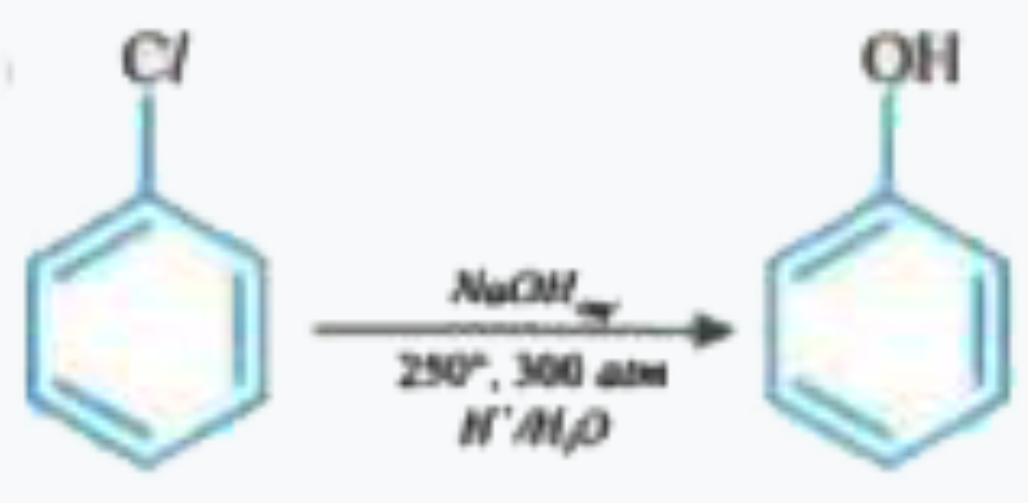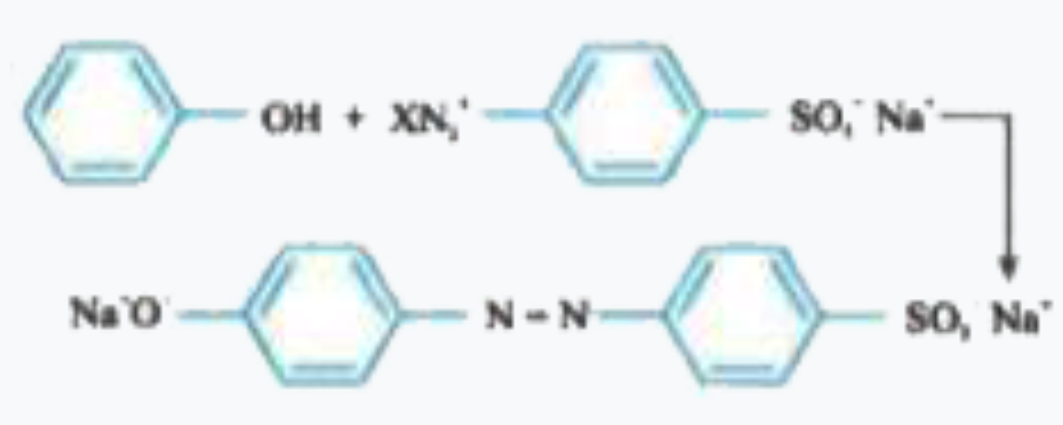Why do alkenes prefer to undergo electrophilec addition reaction while arenes prefer electrophilic substitution reactions ? Explain.
Video Solution
Text Solution
Haloalkanes are more polar than haloarenes. Therefore, the carbon atom carrying the halogen in haloalkanes is more electron deficient (i.e., more positively charged) than that in haloarenes. As a result, haloalkanes undergo nucleophilic substitution reactions more readily than haloarenes.
On the other hand, haloarenes contain a benzene ring. Since the typical reactions of benzene are electrophilie substitution reactions, therefore, haloarenes undergo electrophilic substitution reactions preferably while haloalkanes which donot contain a benzene ring donot undergo electrophilic substitution reactions.
|
Topper's Solved these Questions
- HALOALKANES AND HALOARENESBOOK - MODERN PUBLICATIONCHAPTER - HALOALKANES AND HALOARENESEXERCISE - A. MULTIPLE CHOICE QUESTIONS (with only one correct answer)
35 Videos
- HALOALKANES AND HALOARENESBOOK - MODERN PUBLICATIONCHAPTER - HALOALKANES AND HALOARENESEXERCISE - B. MULTIPLE CHOICE QUESTIONS (from competitive Examinations)
63 Videos
- HALOALKANES AND HALOARENESBOOK - MODERN PUBLICATIONCHAPTER - HALOALKANES AND HALOARENESEXERCISE - REVISION EXERCISE (Long Answer Questions)
4 Videos
- GENERAL PRINCIPLES AND PROCESSES OF ISOLATION OF ELEMENTSBOOK - MODERN PUBLICATIONCHAPTER - GENERAL PRINCIPLES AND PROCESSES OF ISOLATION OF ELEMENTSEXERCISE - COMPETION FILE (Integer Type Numerical Value Type Questions)
5 Videos
- ORGANIC COMPOUNDS CONTAINING NITROGEN BOOK - MODERN PUBLICATIONCHAPTER - ORGANIC COMPOUNDS CONTAINING NITROGEN EXERCISE - UNIT PRACTICE TEST
5 Videos
Similar Questions
Knowledge Check
The example of an electrophilic substitution reaction is
A B
B CH2C=CH−CH3HBr−−−−→peroxide
CH2C=CH−CH3HBr−−−−→peroxide
Br2−CH2−CH2−CH3DH2CH2−CH2−O∣∣C−CH3For an electrophilic aromatic substitution reaction
AChlorine is o-p directing group and also electron releasing groupBChlorine is o-p directing group and also electron withdrawing groupCChlorine is meta directing group and also electron releasing groupDChlorine is meta directing group and also electron withdrawing group
Electrophilic Addition Reaction
View SolutionWhy do alkenes undergo electrophilic addition reactions ?
View SolutionWhy do alkenes undergo electrophilic addition reactions ?
View SolutionElectrophilic substitution reaction in Haloarenes
View SolutionHaloalkanes undergo nucleophilic substitution reactions while haloarenes undergo electrophilic substitution reactions. Explain.
View SolutionElectrophilic Addition Reaction |Summary
View Solution
